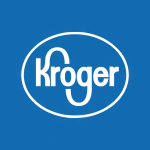Welcome to our dedicated page for Kroger SEC filings (Ticker: KR), a comprehensive resource for investors and traders seeking official regulatory documents including 10-K annual reports, 10-Q quarterly earnings, 8-K material events, and insider trading forms.
Scanning 260 pages of grocery economics isn’t how most investors want to spend a morning. Kroger’s retail empire spans supermarkets, pharmacies, fuel pumps and a fast-growing digital platform—meaning its SEC disclosures can feel as complex as its store aisles. This page gathers every Kroger filing in one place and lets Stock Titan’s AI do the heavy lifting.
Need the Kroger annual report 10-K simplified? Our AI highlights identical supermarket sales, private-label penetration and fuel margins in plain English. Looking for the latest Kroger quarterly earnings report 10-Q filing? We surface inflation commentary, digital sales trends and segment profit in seconds. Sudden supply-chain update? A fresh Kroger 8-K material events explained alert appears here moments after it hits EDGAR.
Curious about executive moves? Follow Kroger insider trading Form 4 transactions in real time—including detailed tables of Kroger executive stock transactions Form 4—so you can spot buying or selling patterns before the next analyst call. The proxy corner breaks down Kroger proxy statement executive compensation so you can benchmark CEO pay against free-cash-flow targets.
Every document��10-K, 10-Q, 8-K, S-3, SD, or Form 4—comes with AI-powered summaries, keyword search, and downloadable exhibits. Whether you’re modeling earnings, checking covenant wording, or simply understanding Kroger SEC documents with AI, this hub delivers Kroger SEC filings explained simply—no finance degree required.


